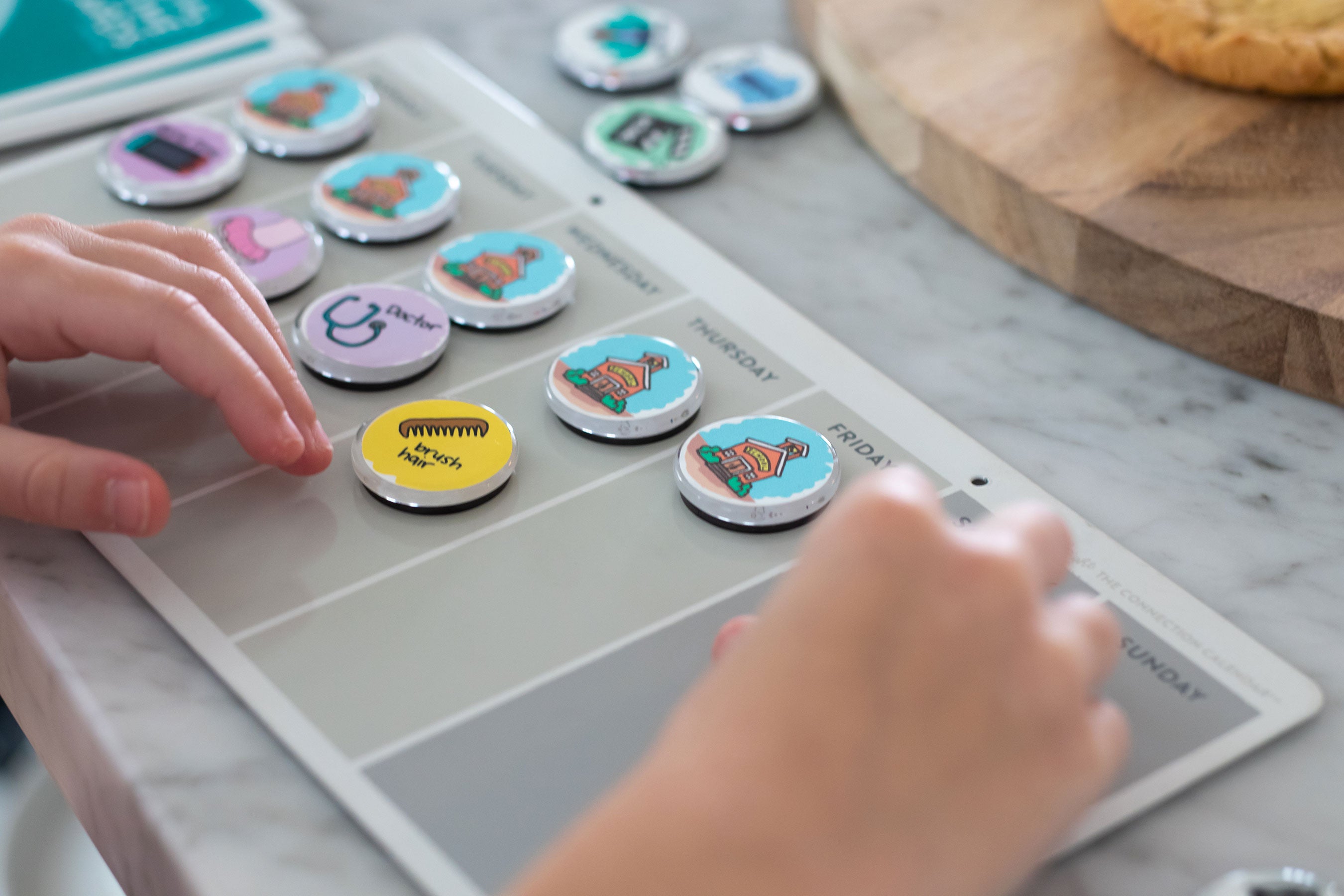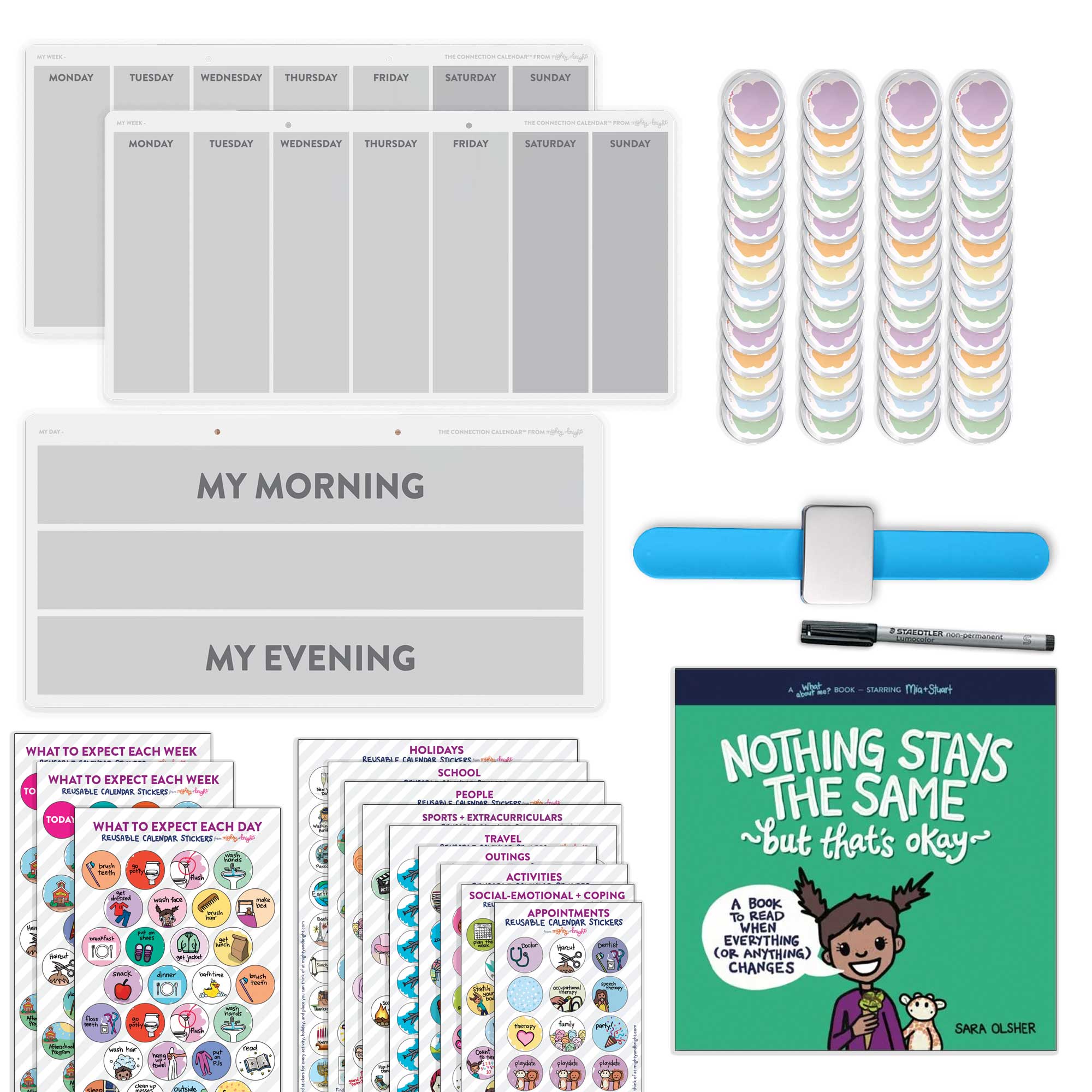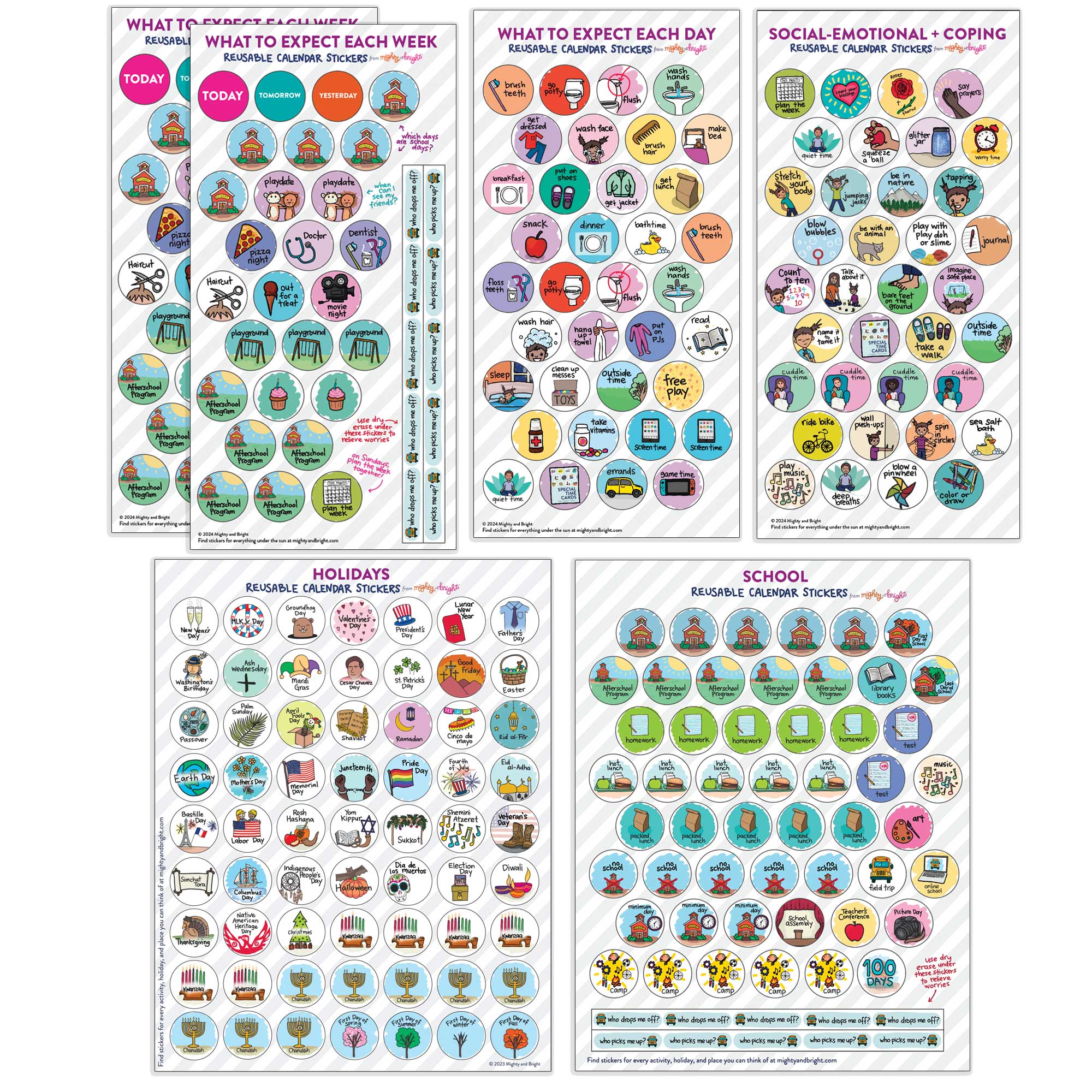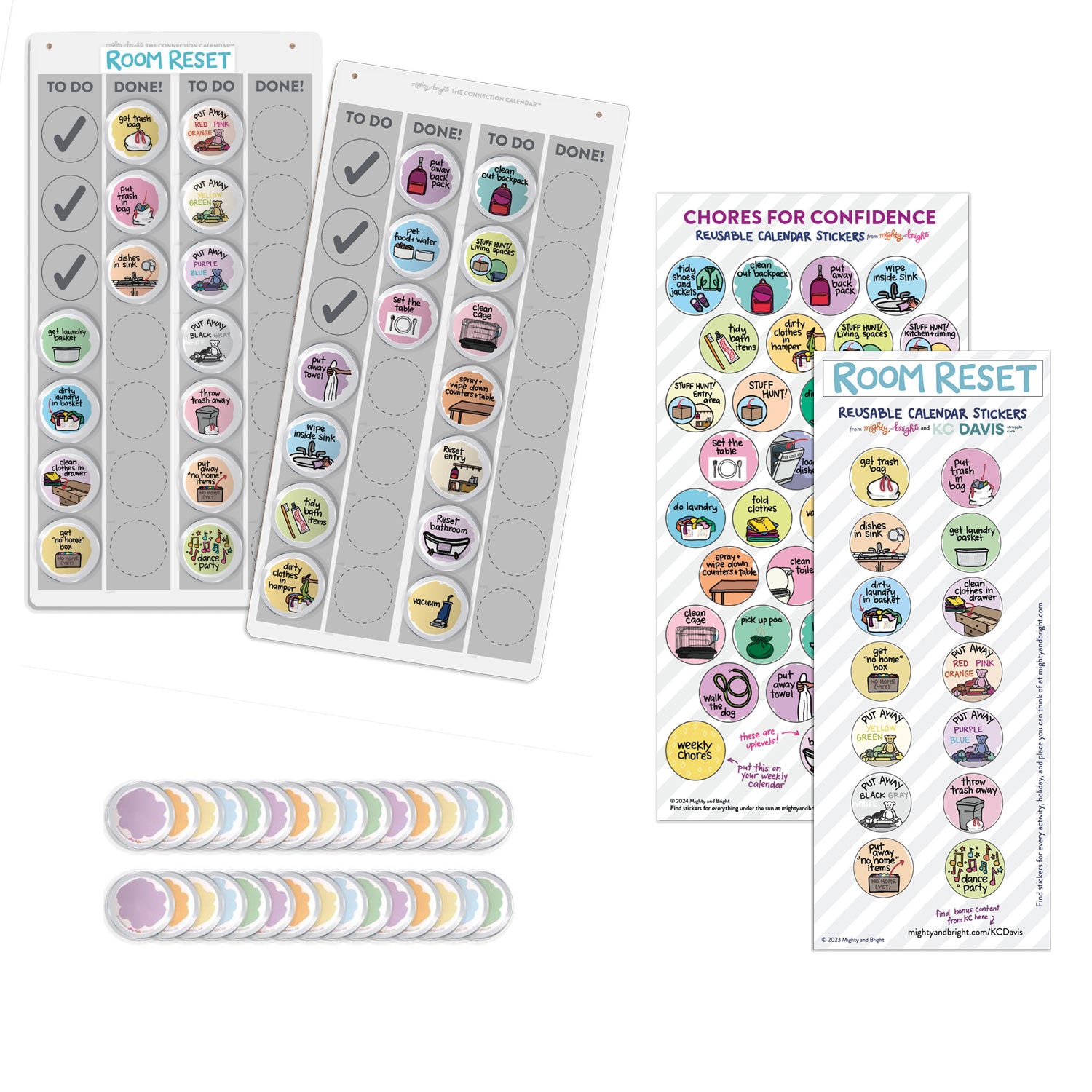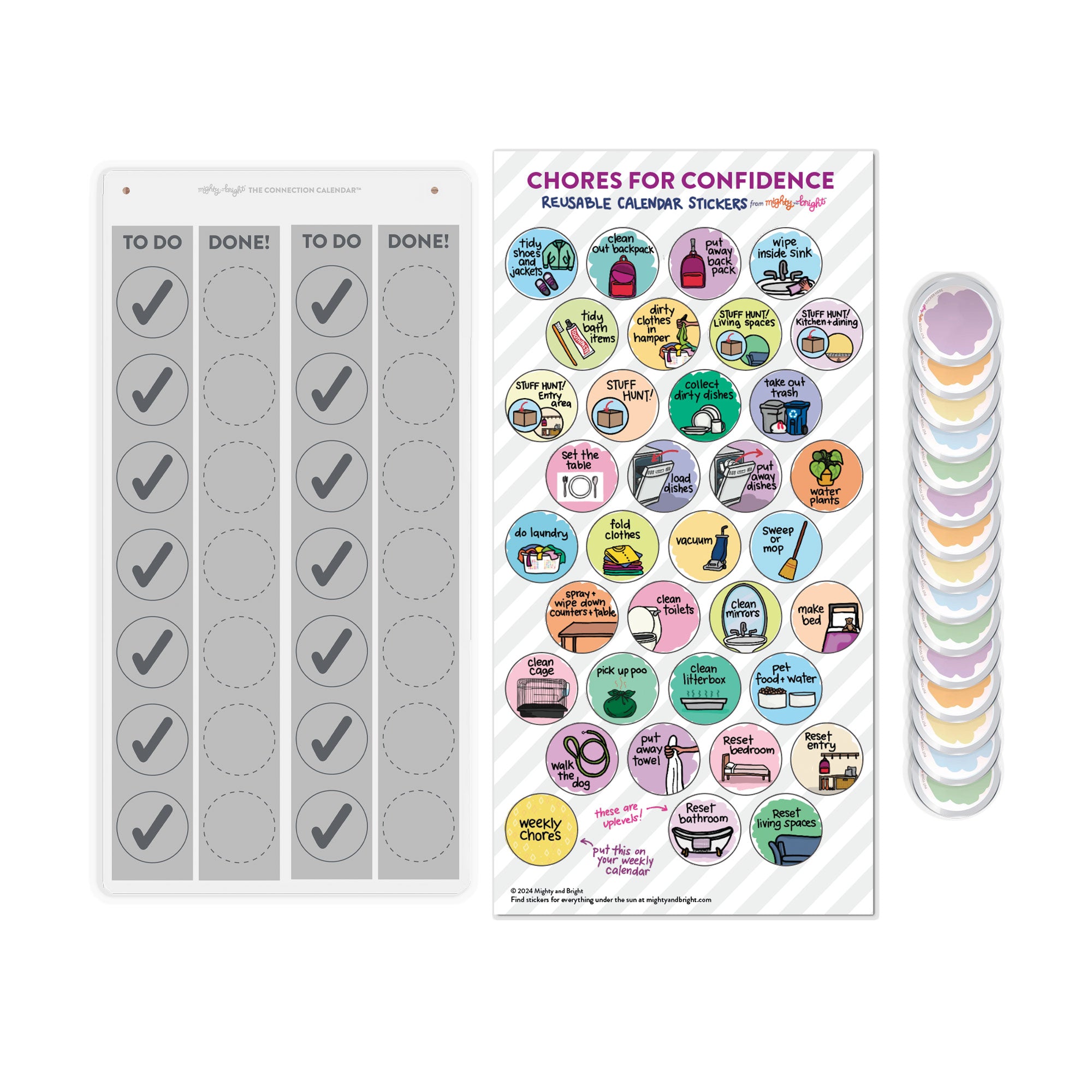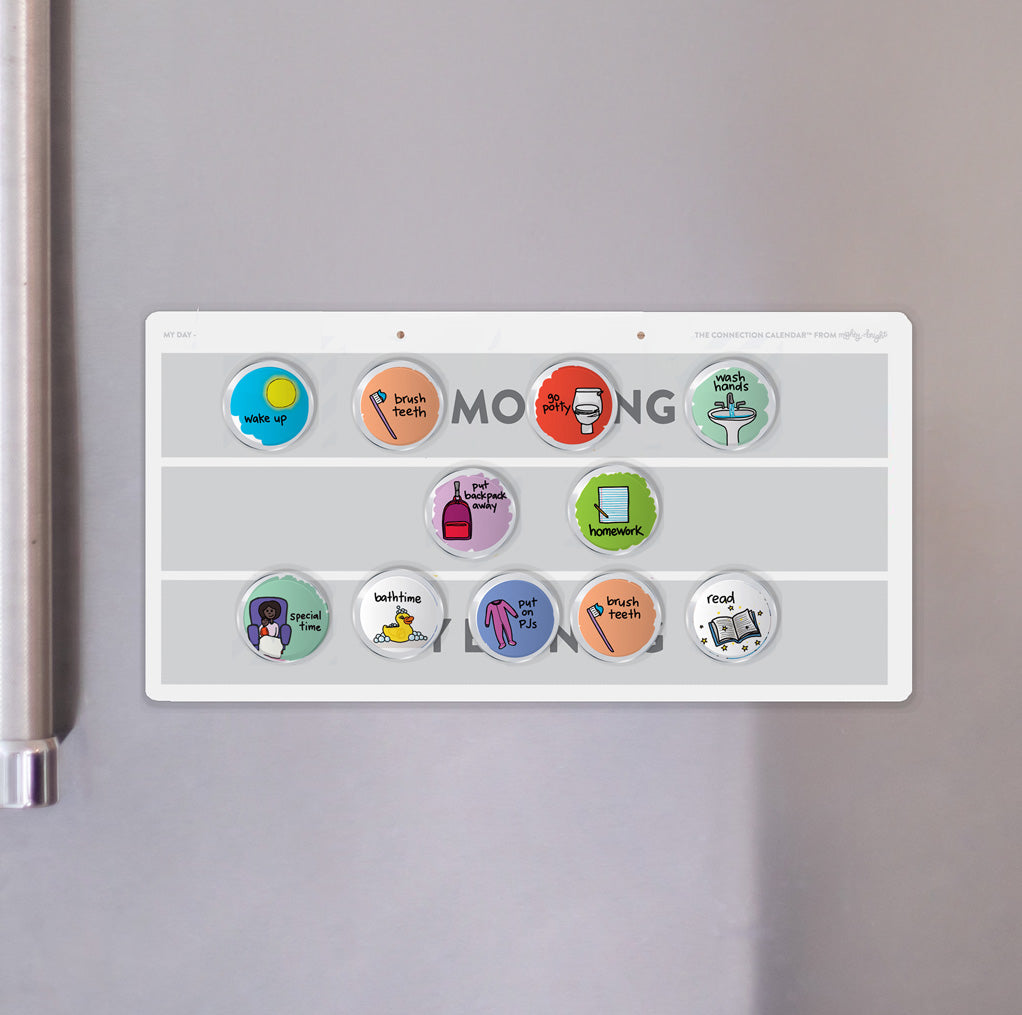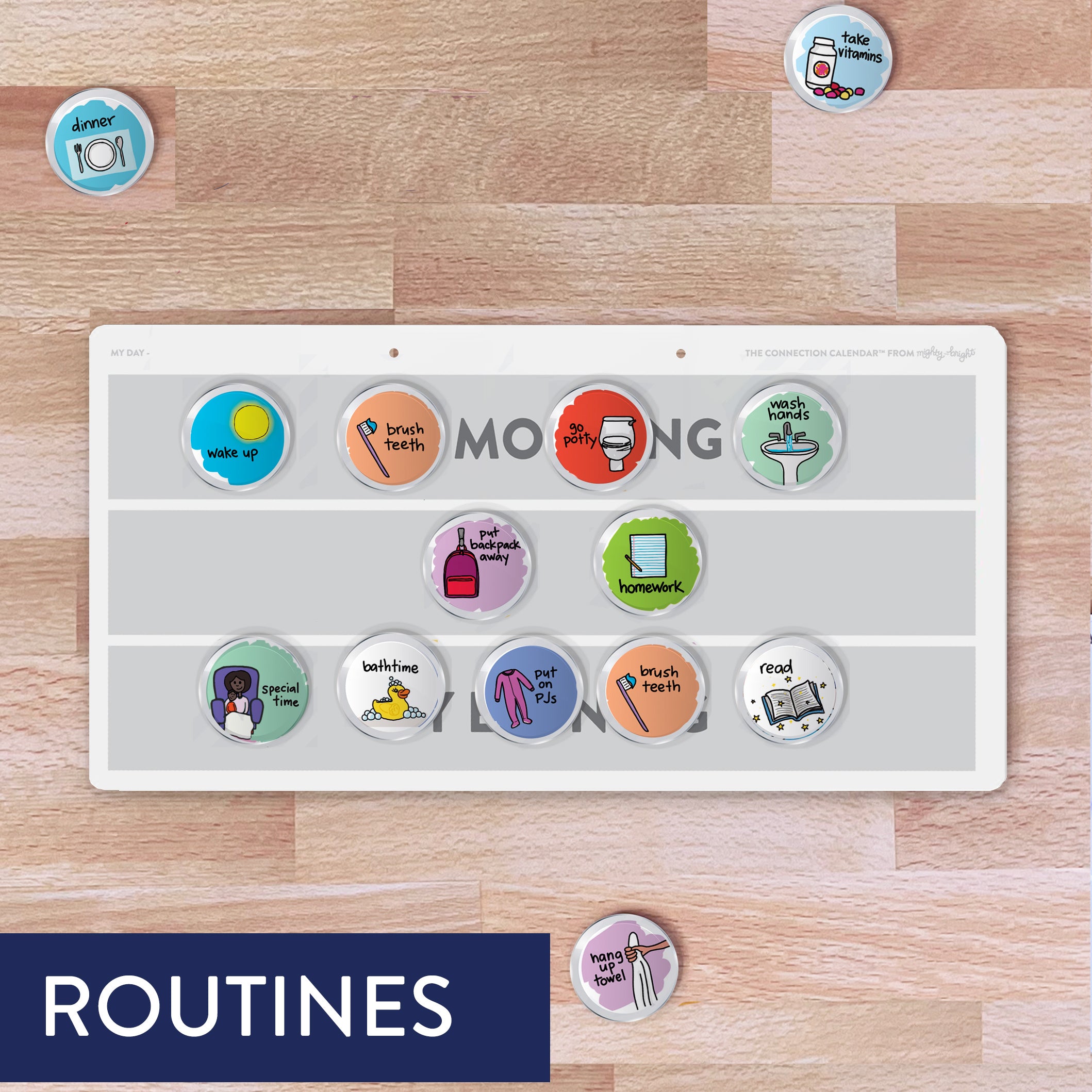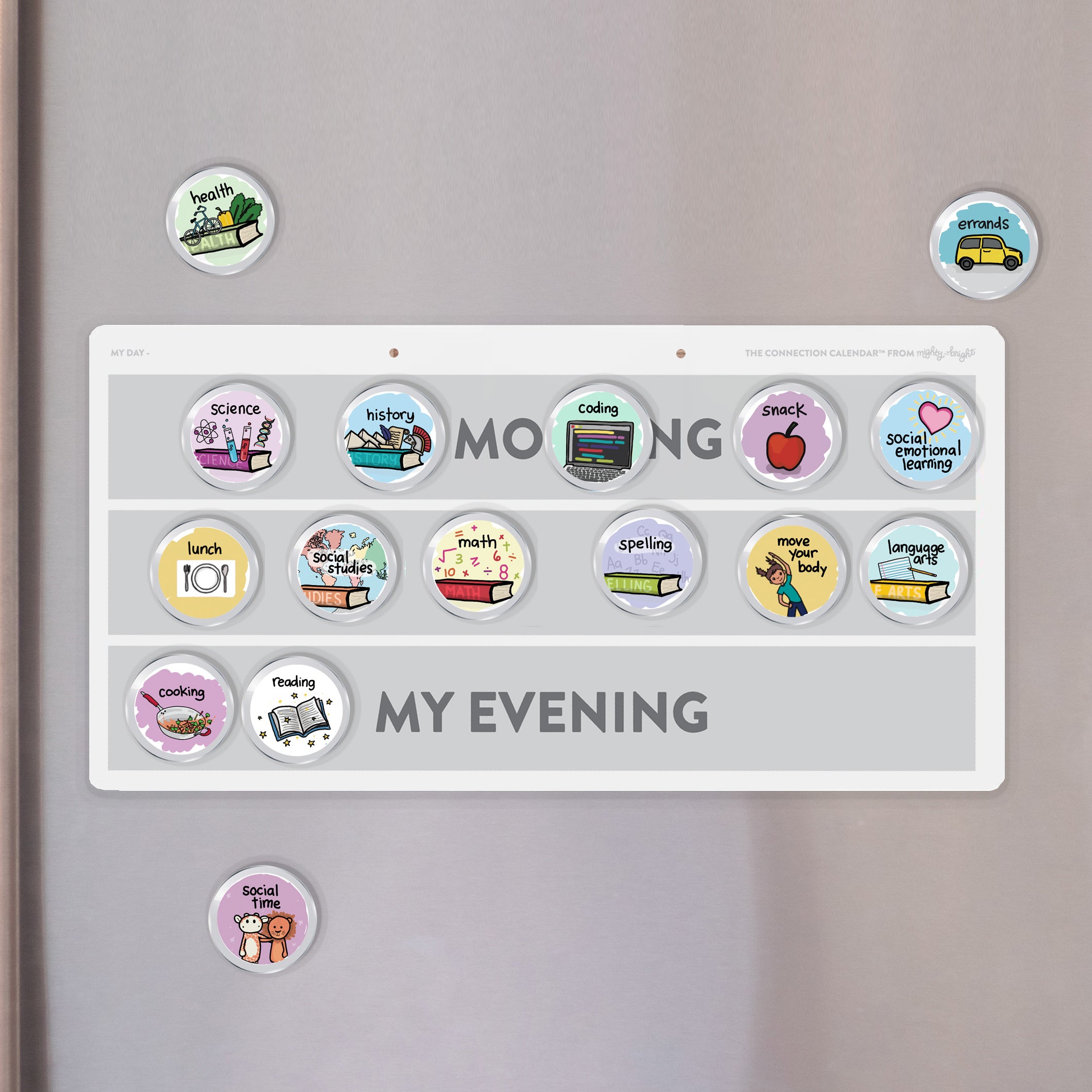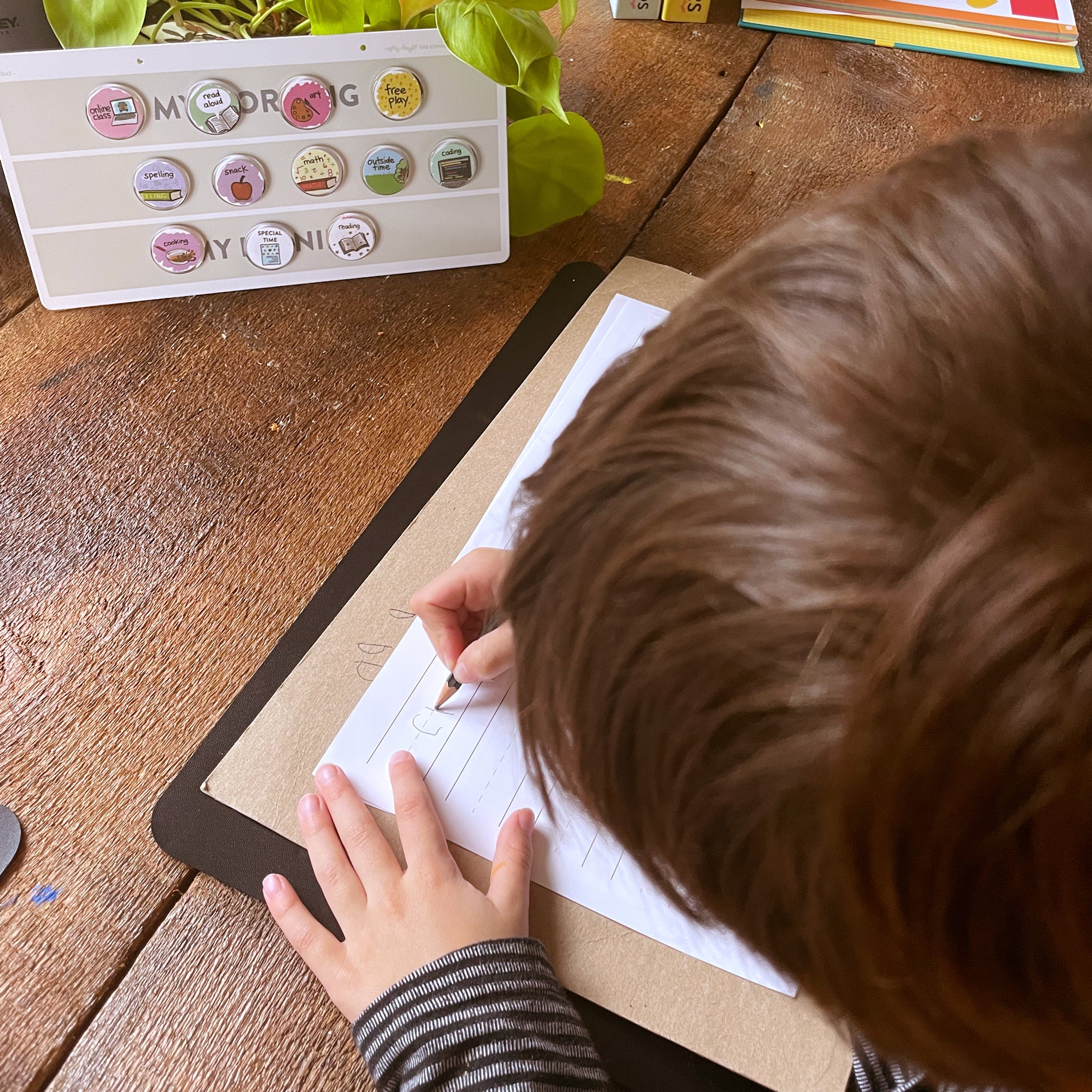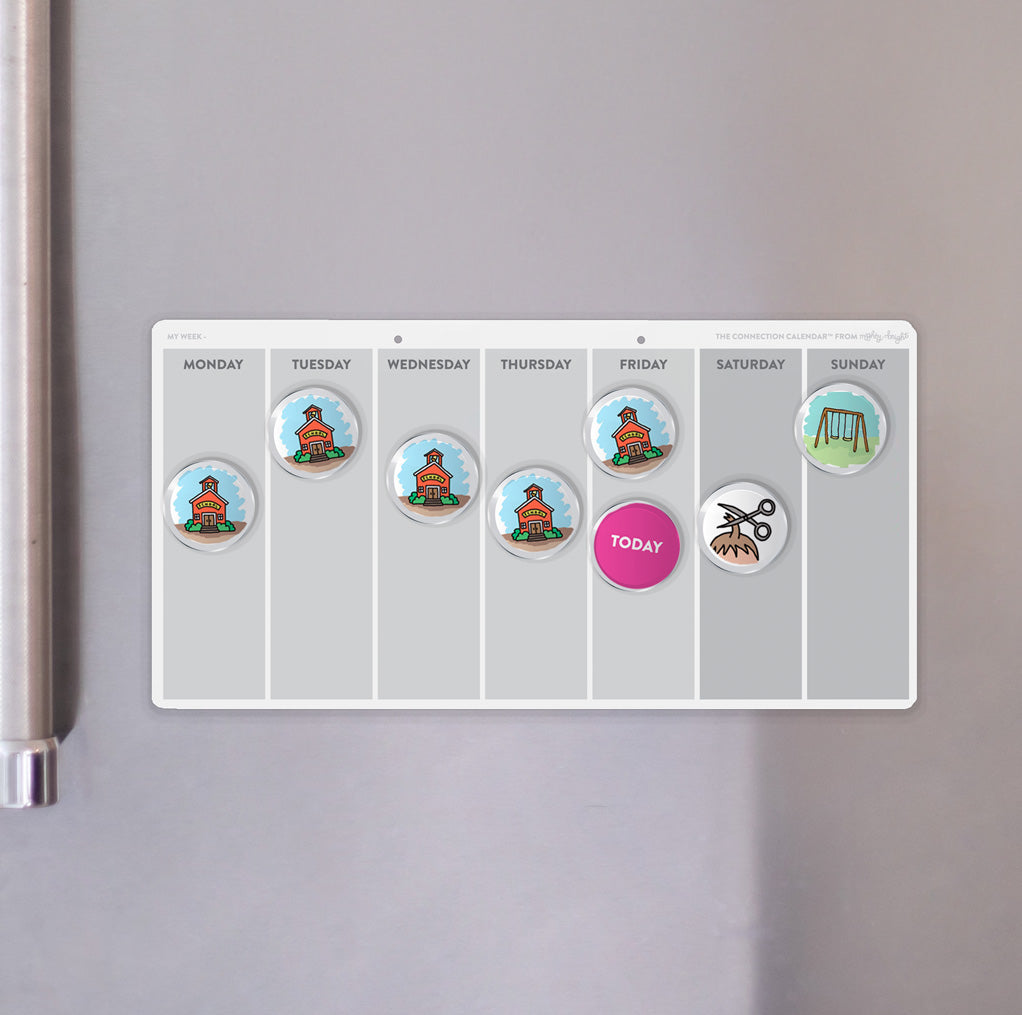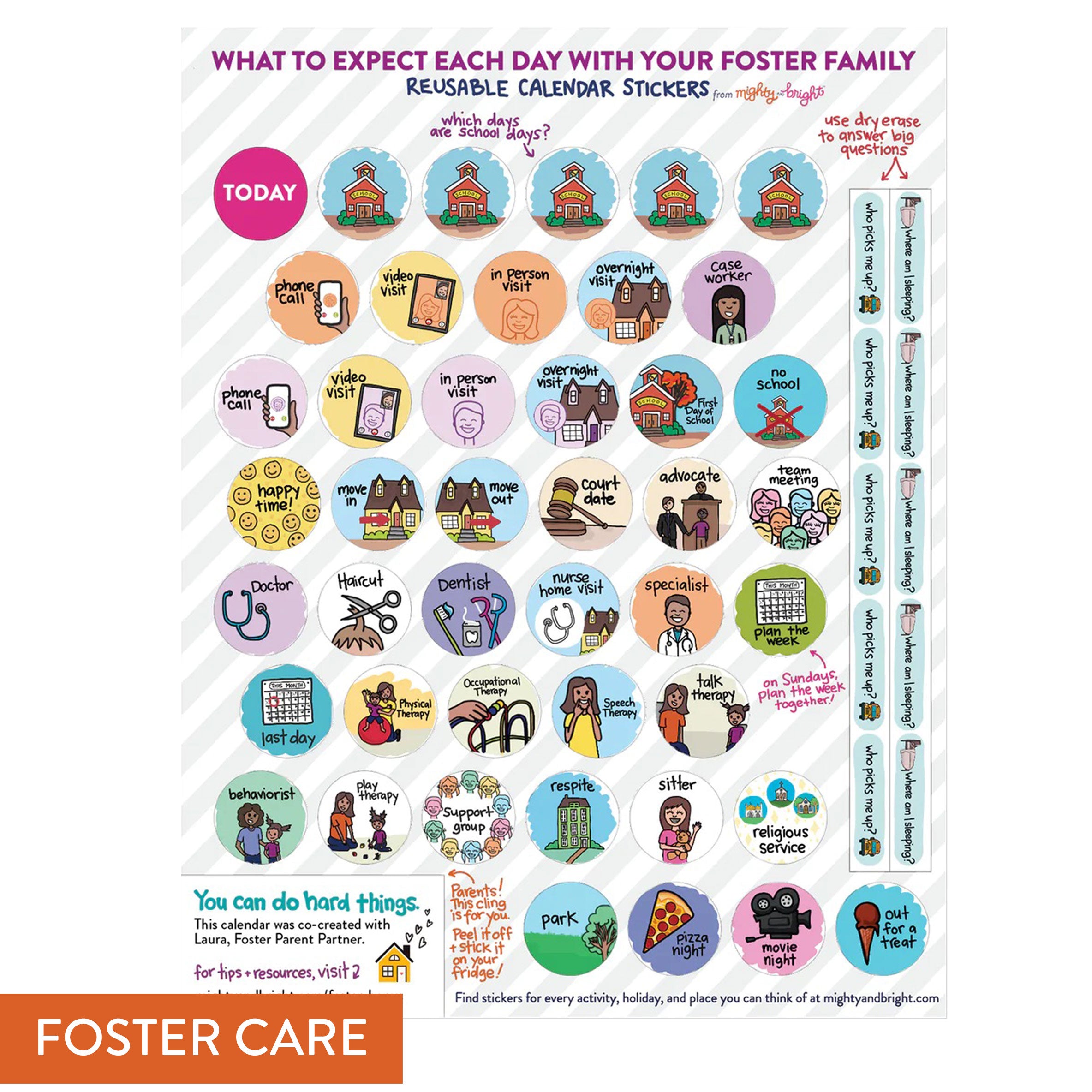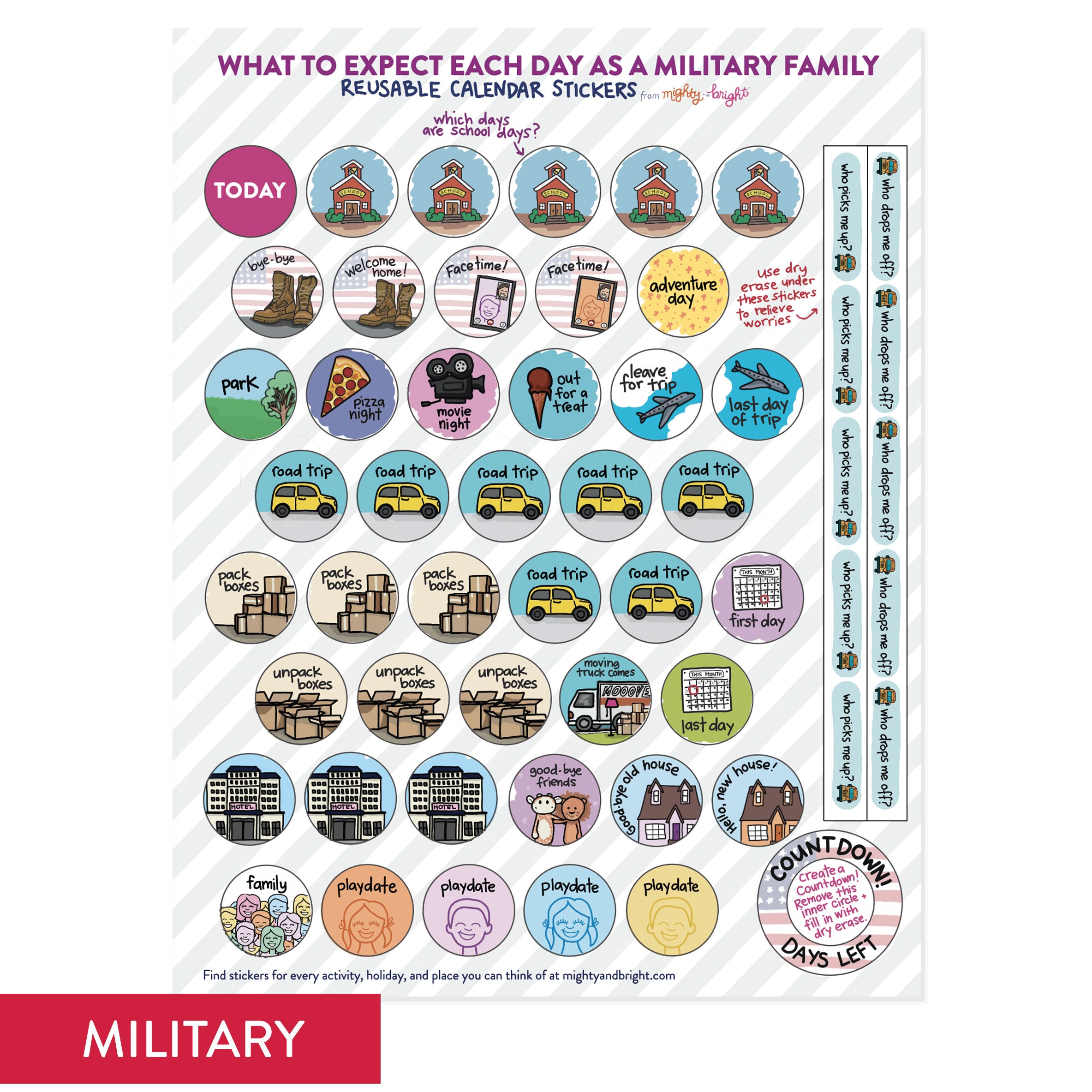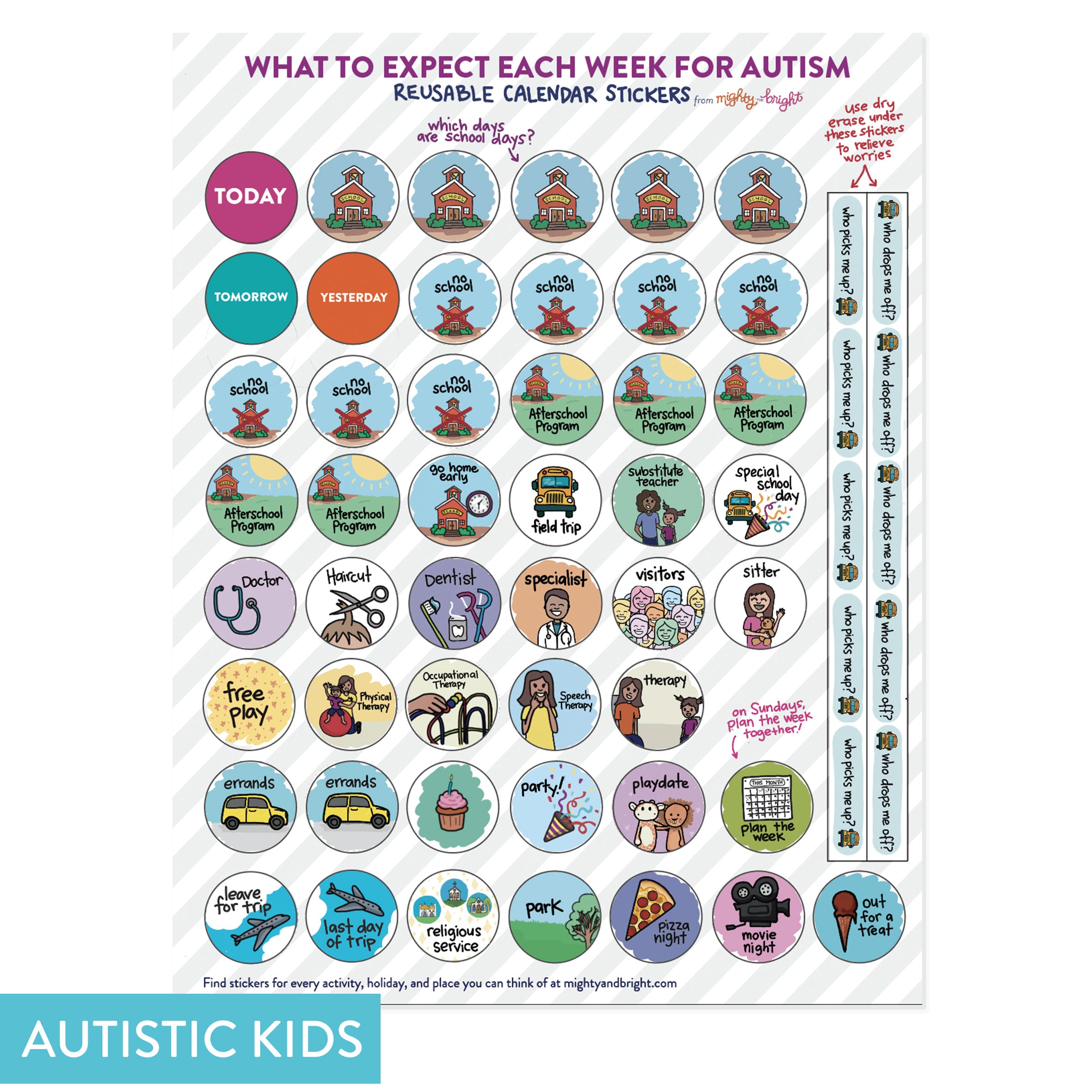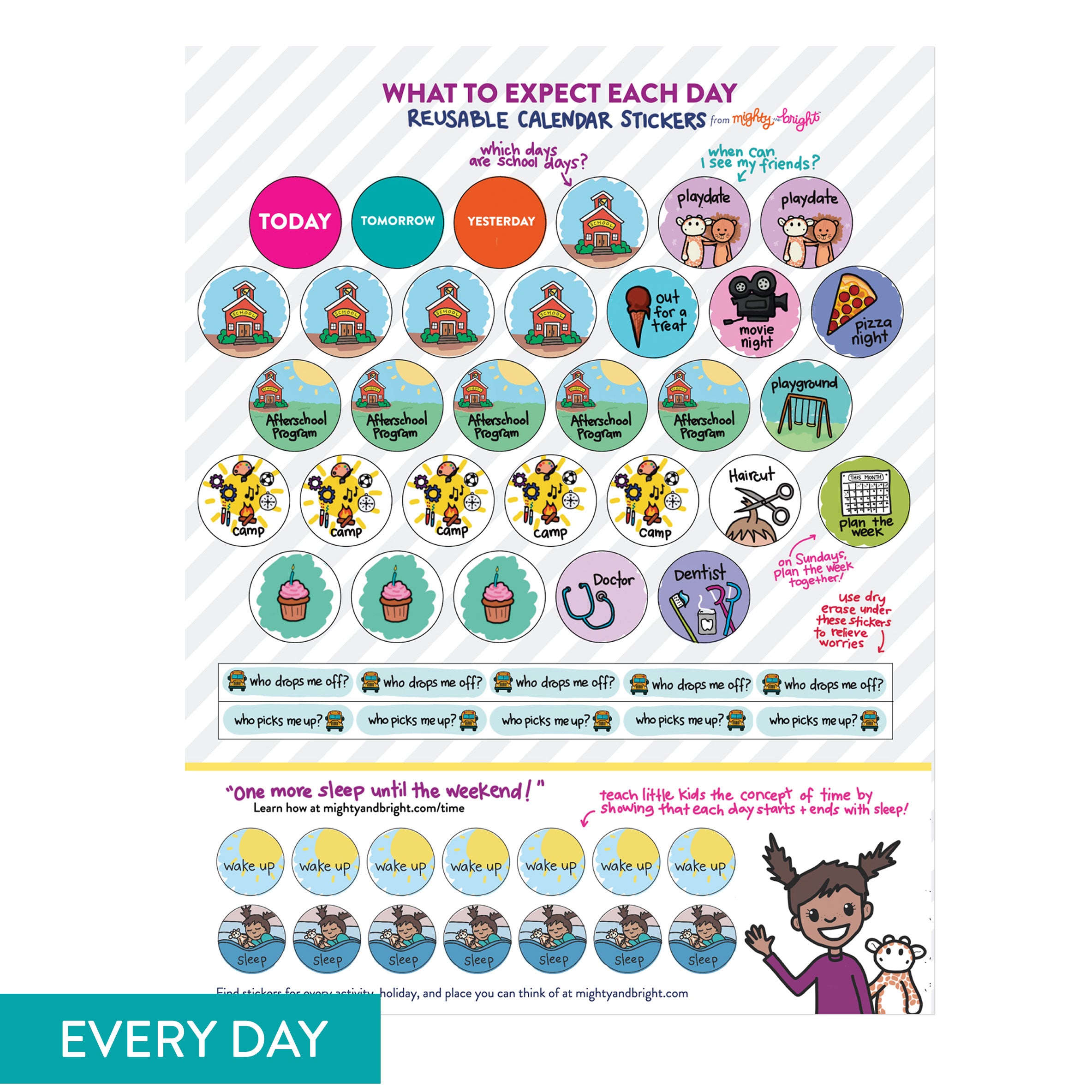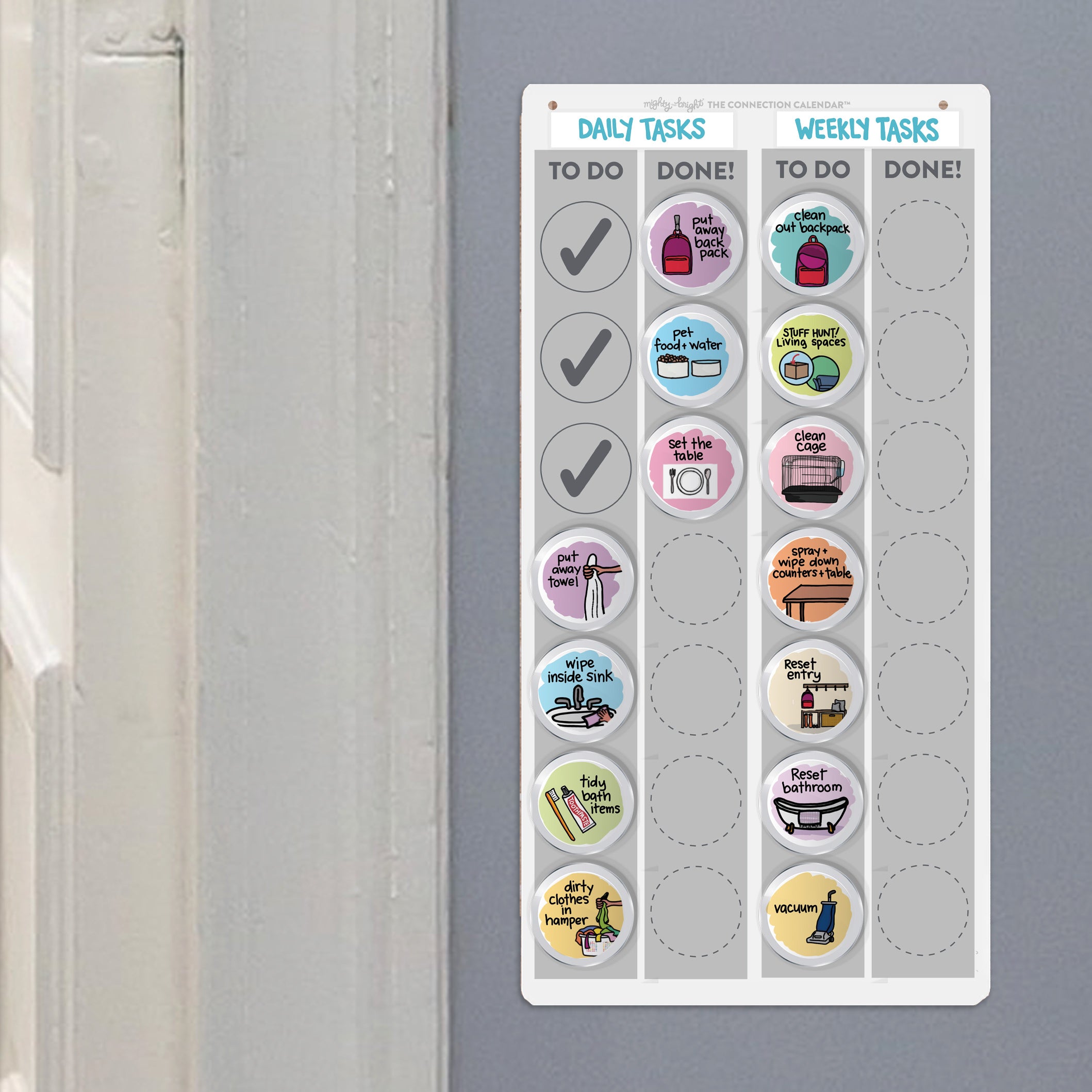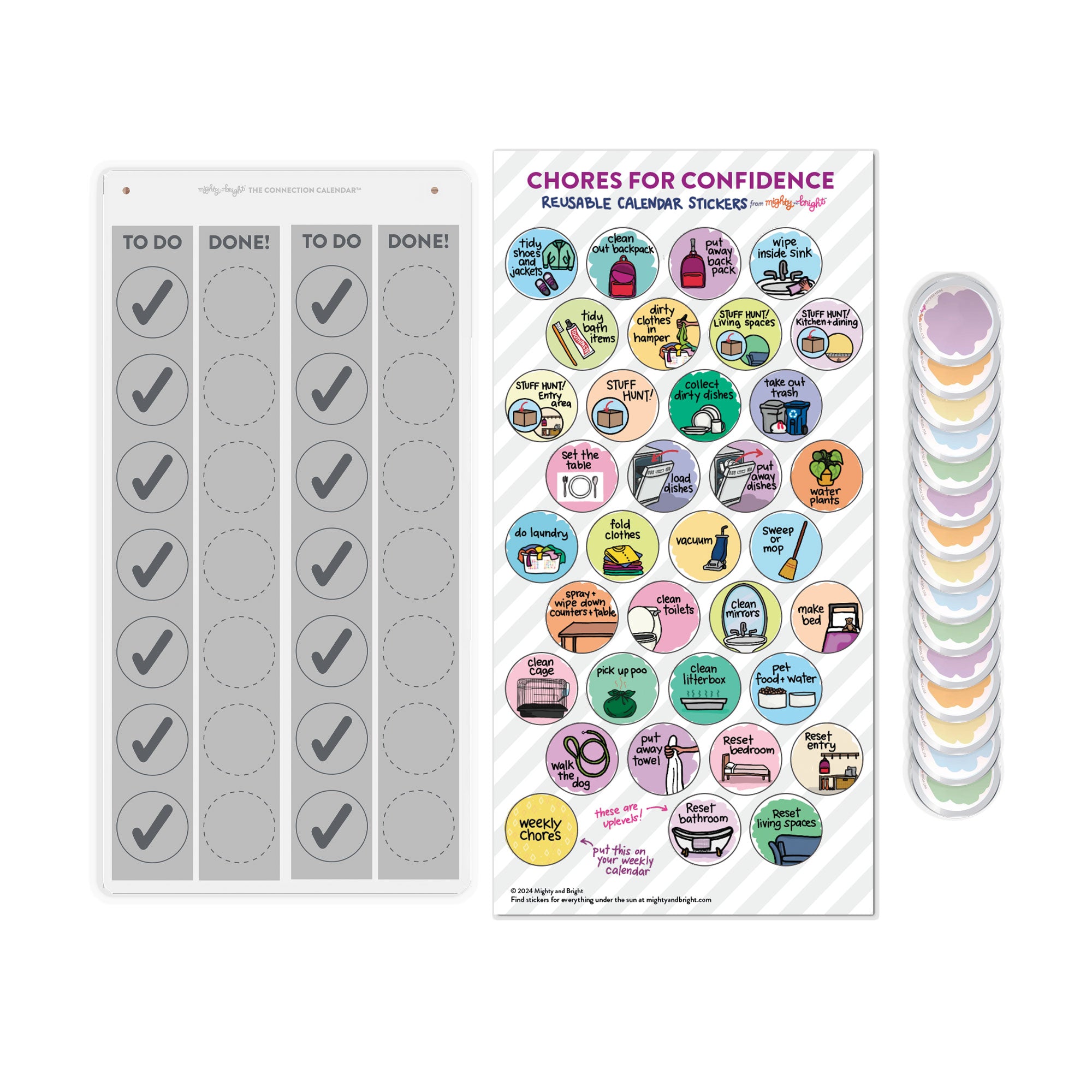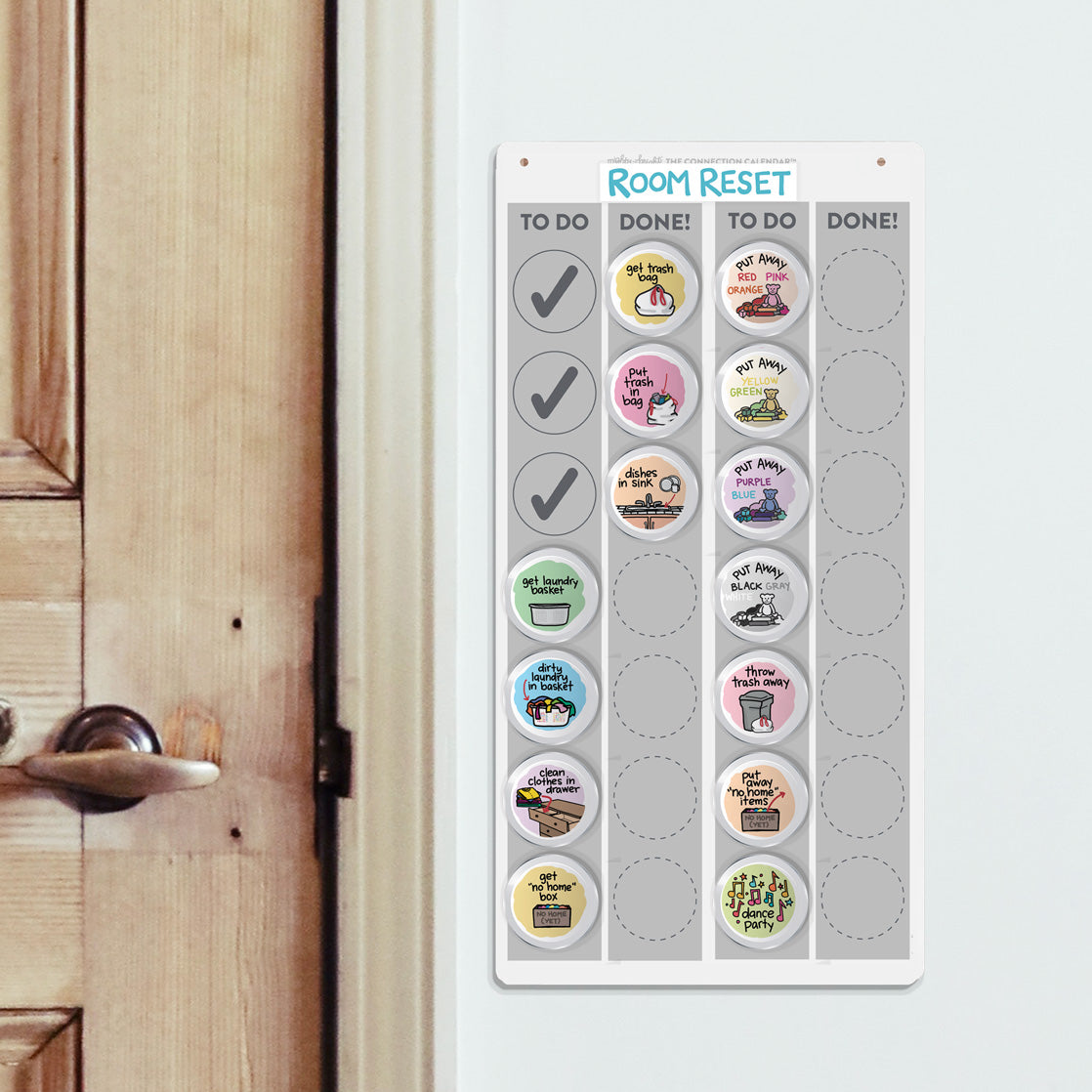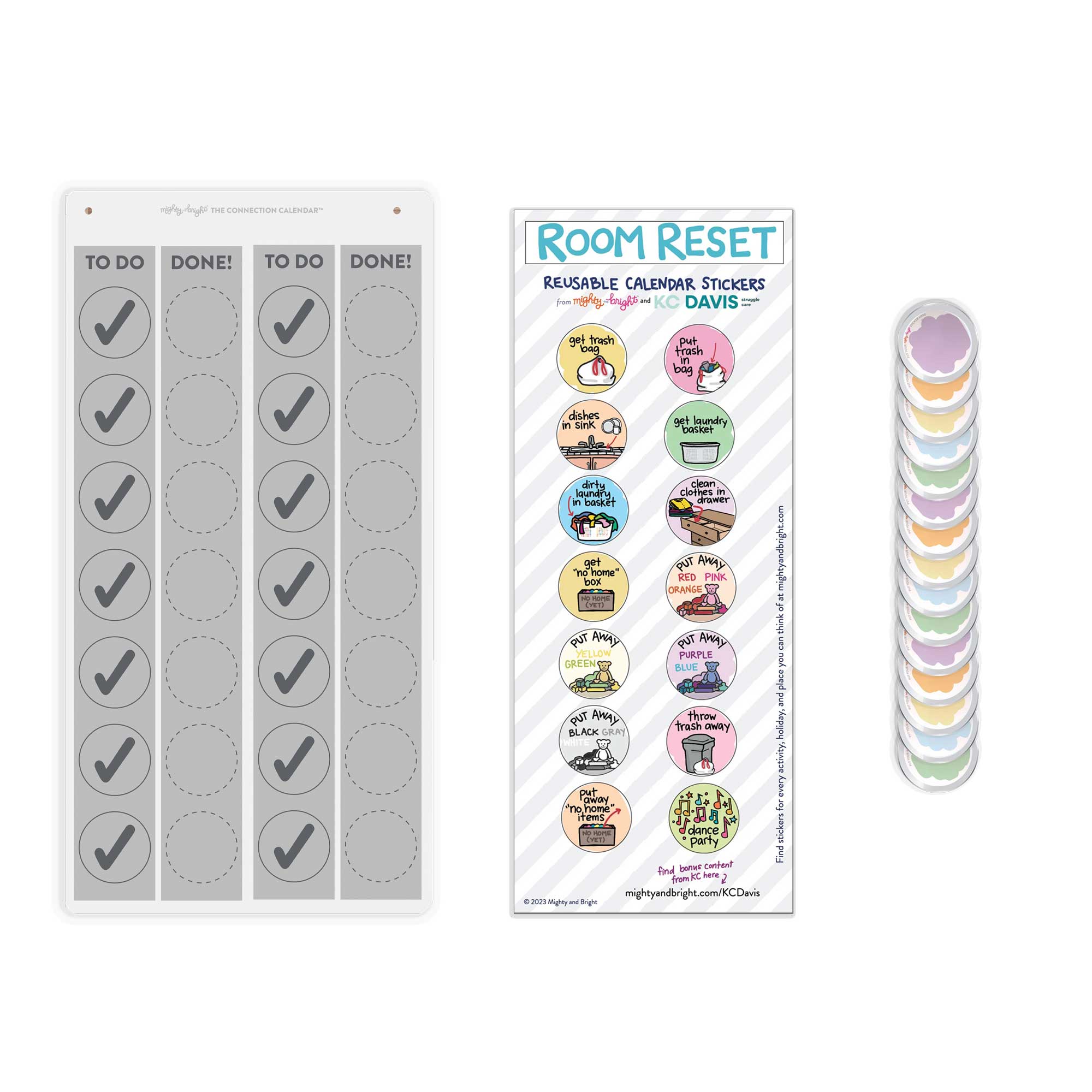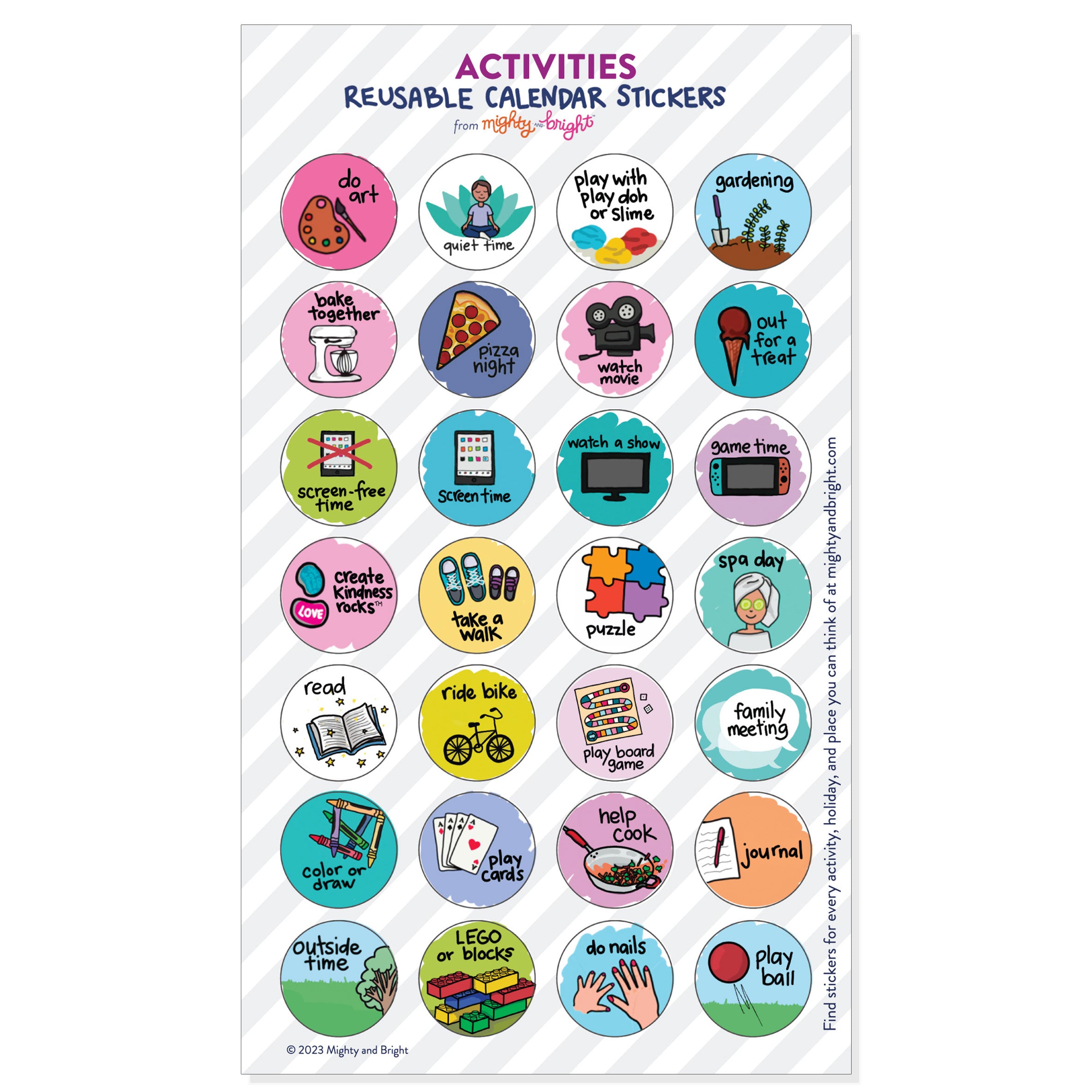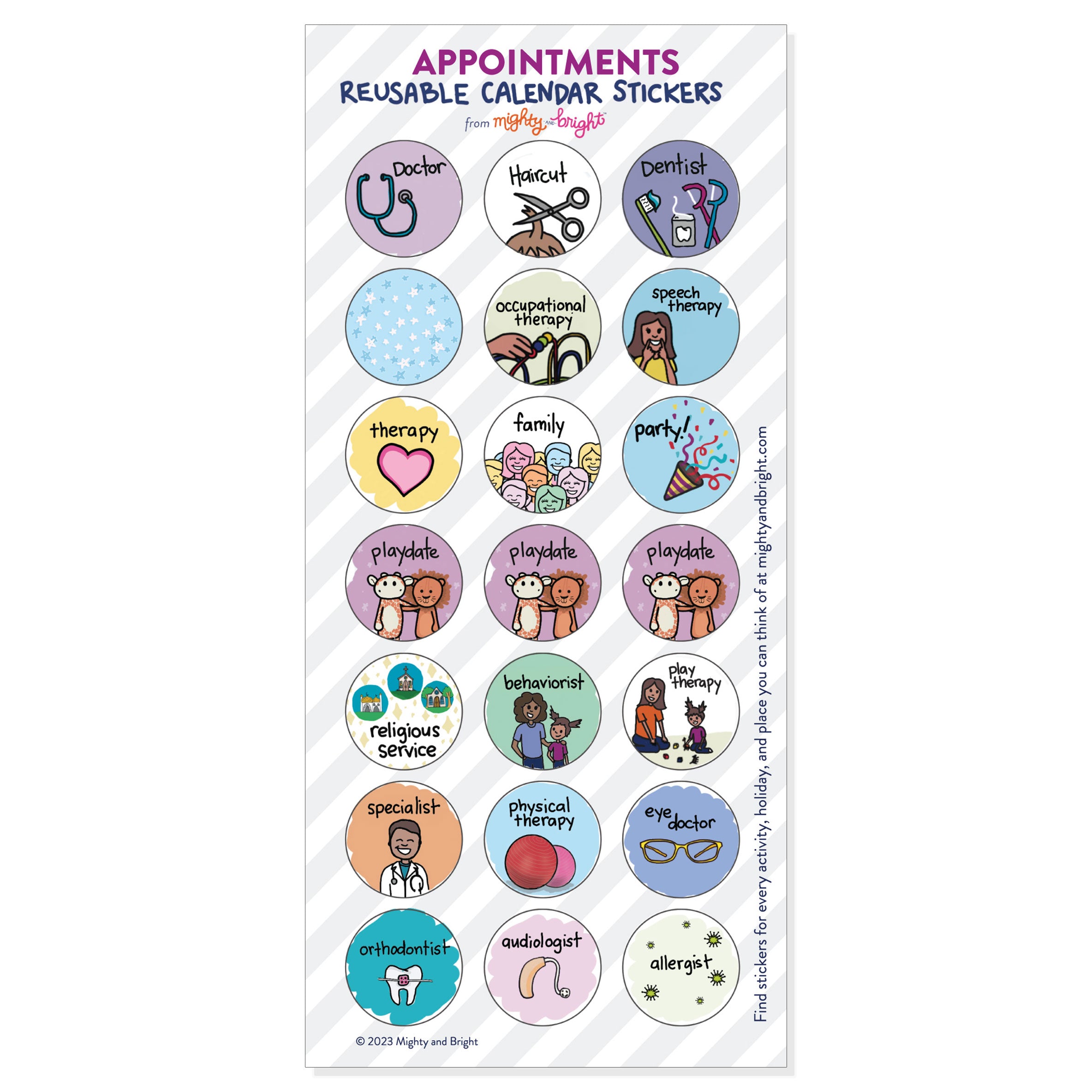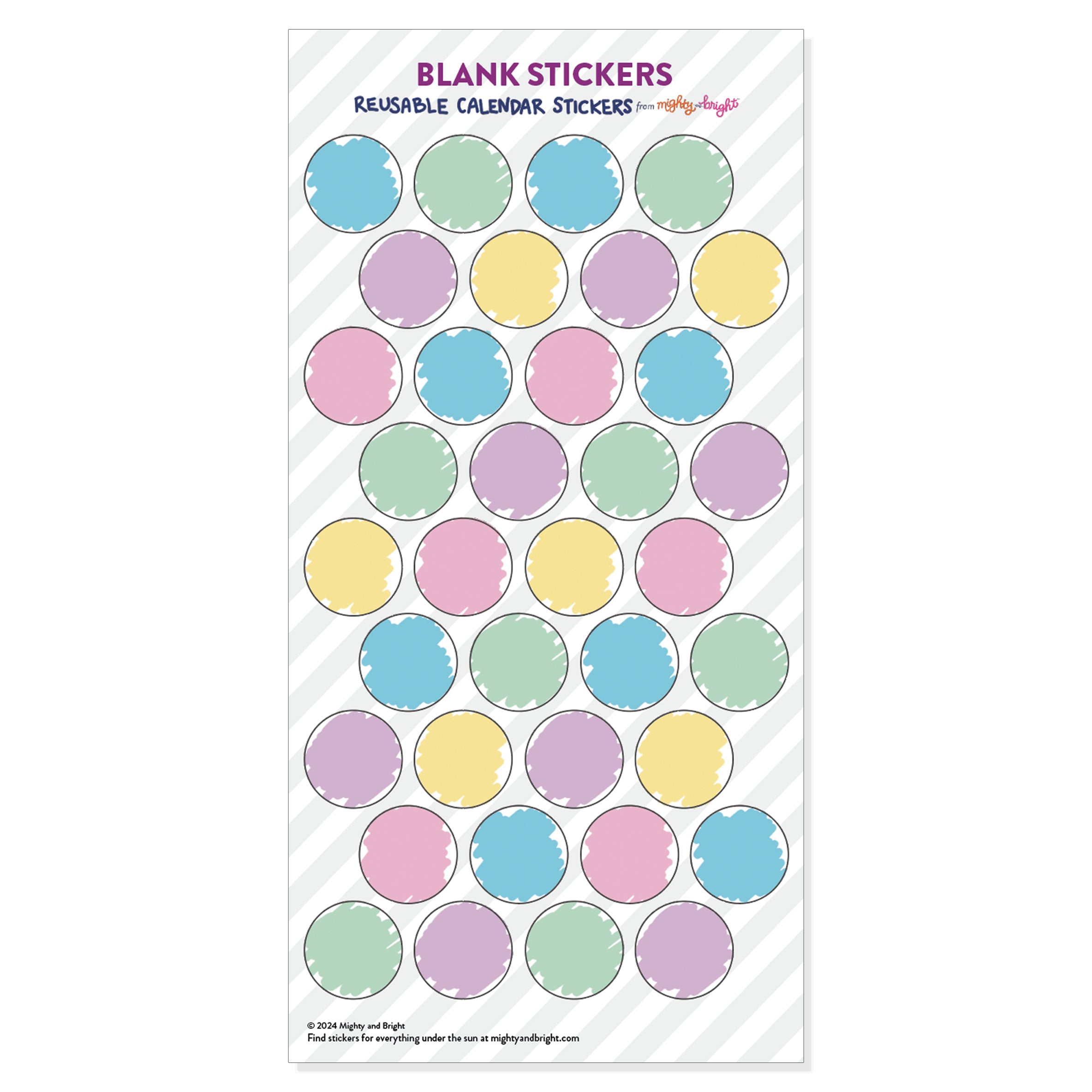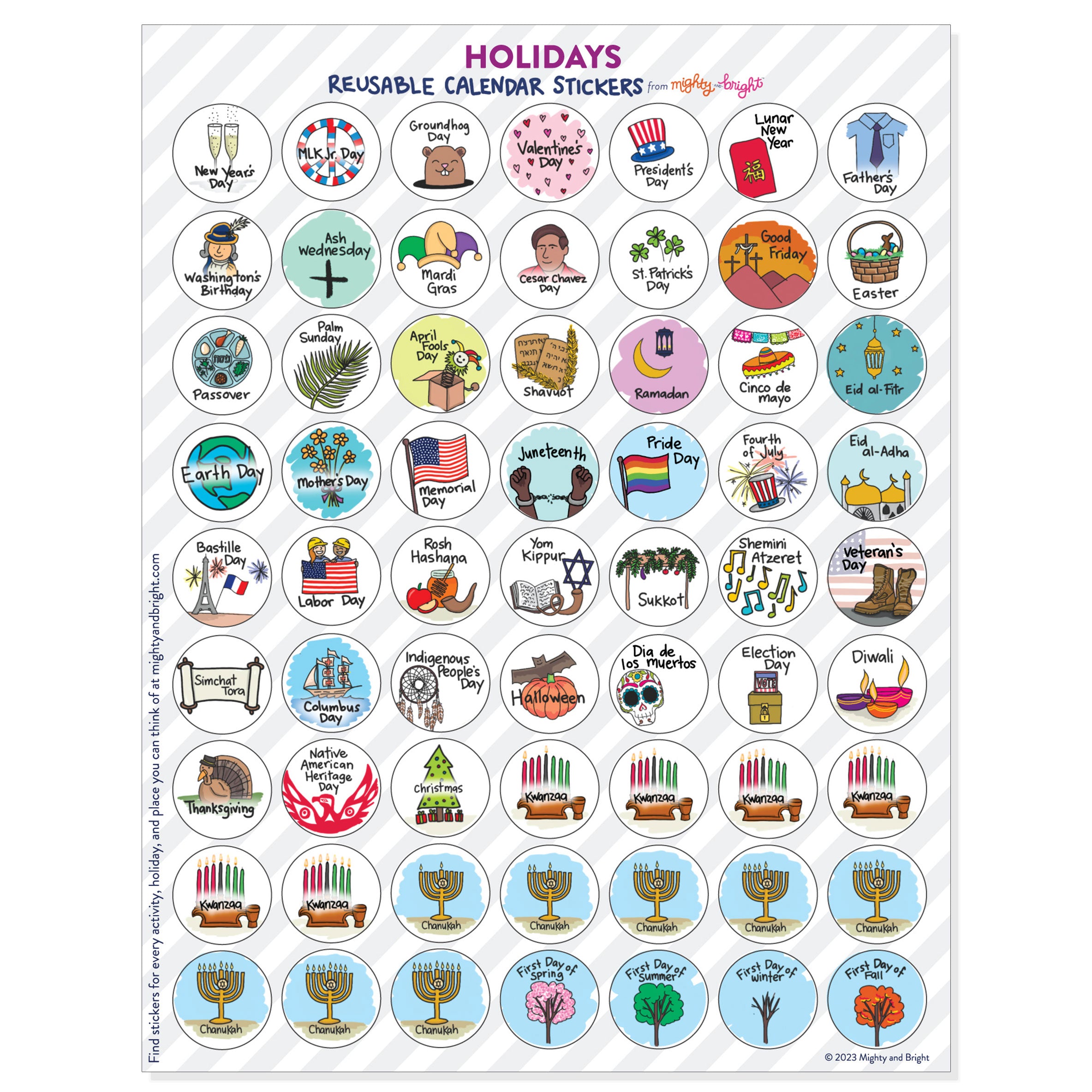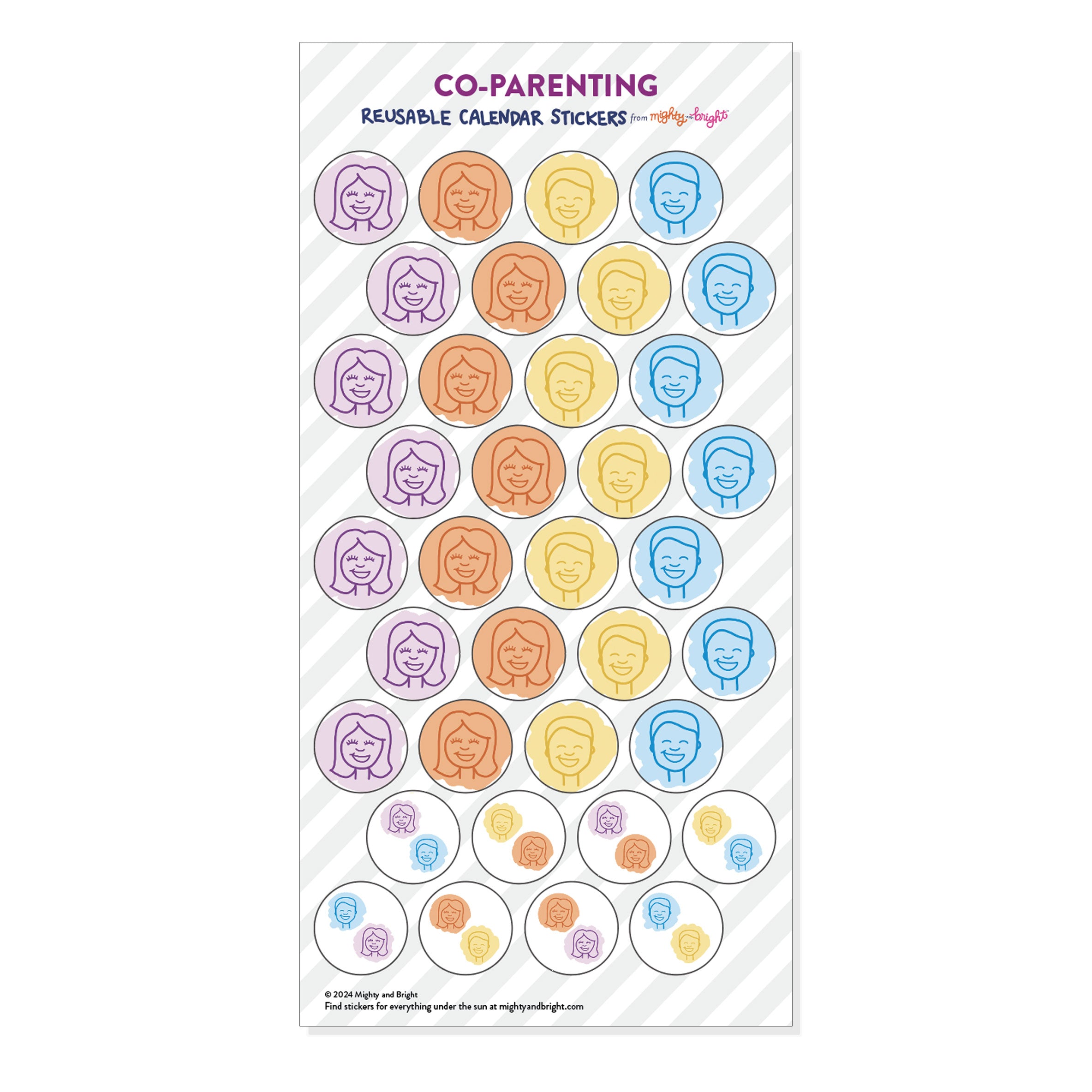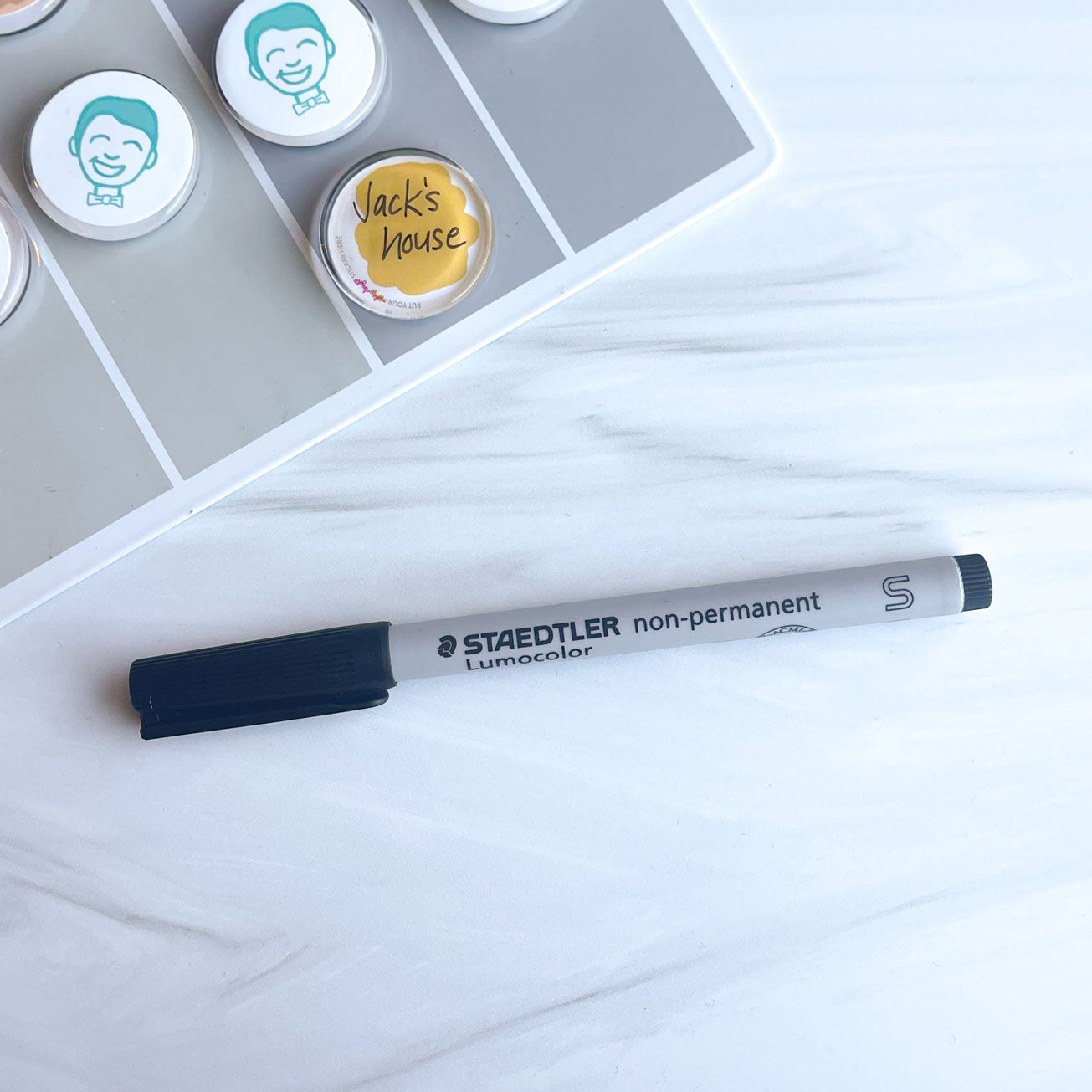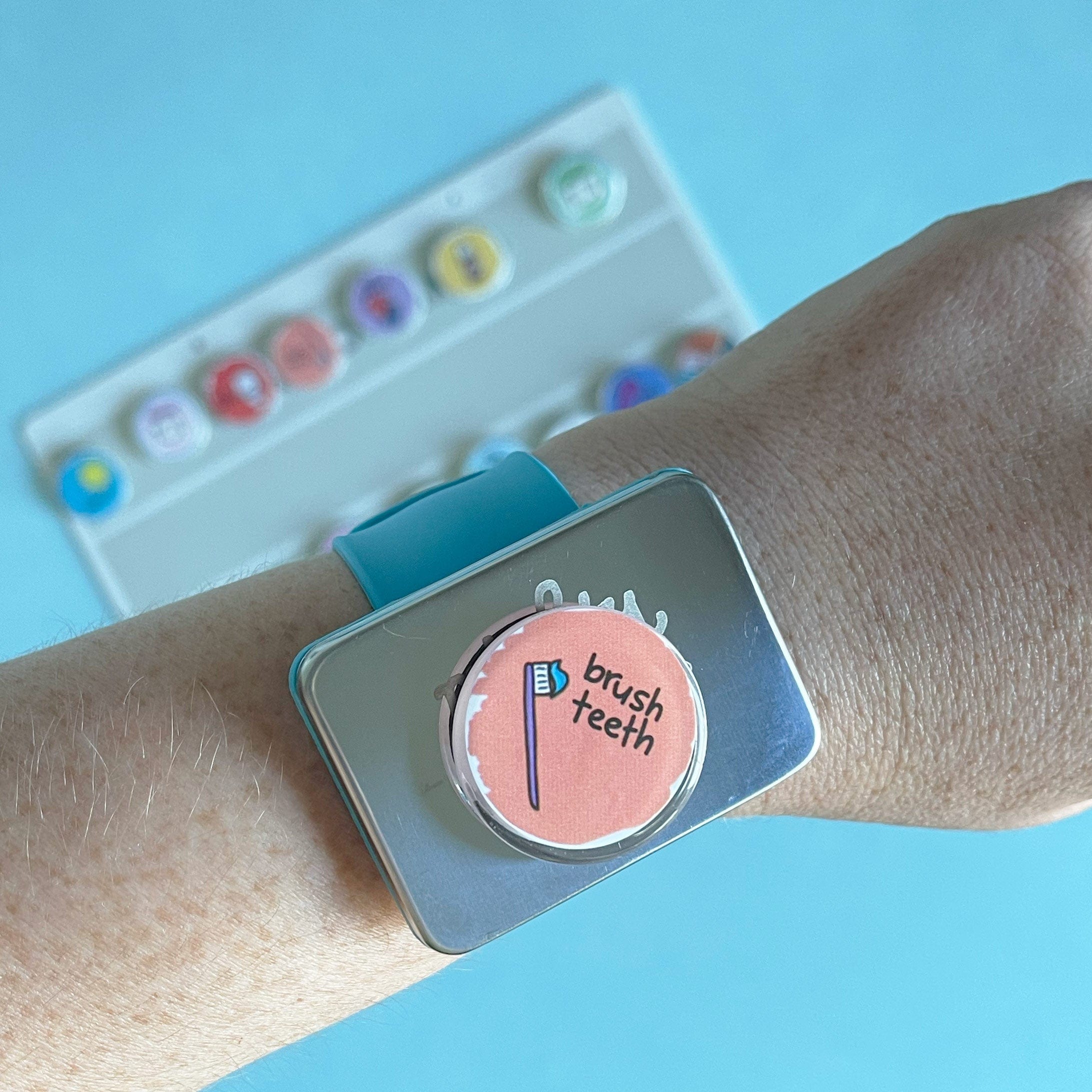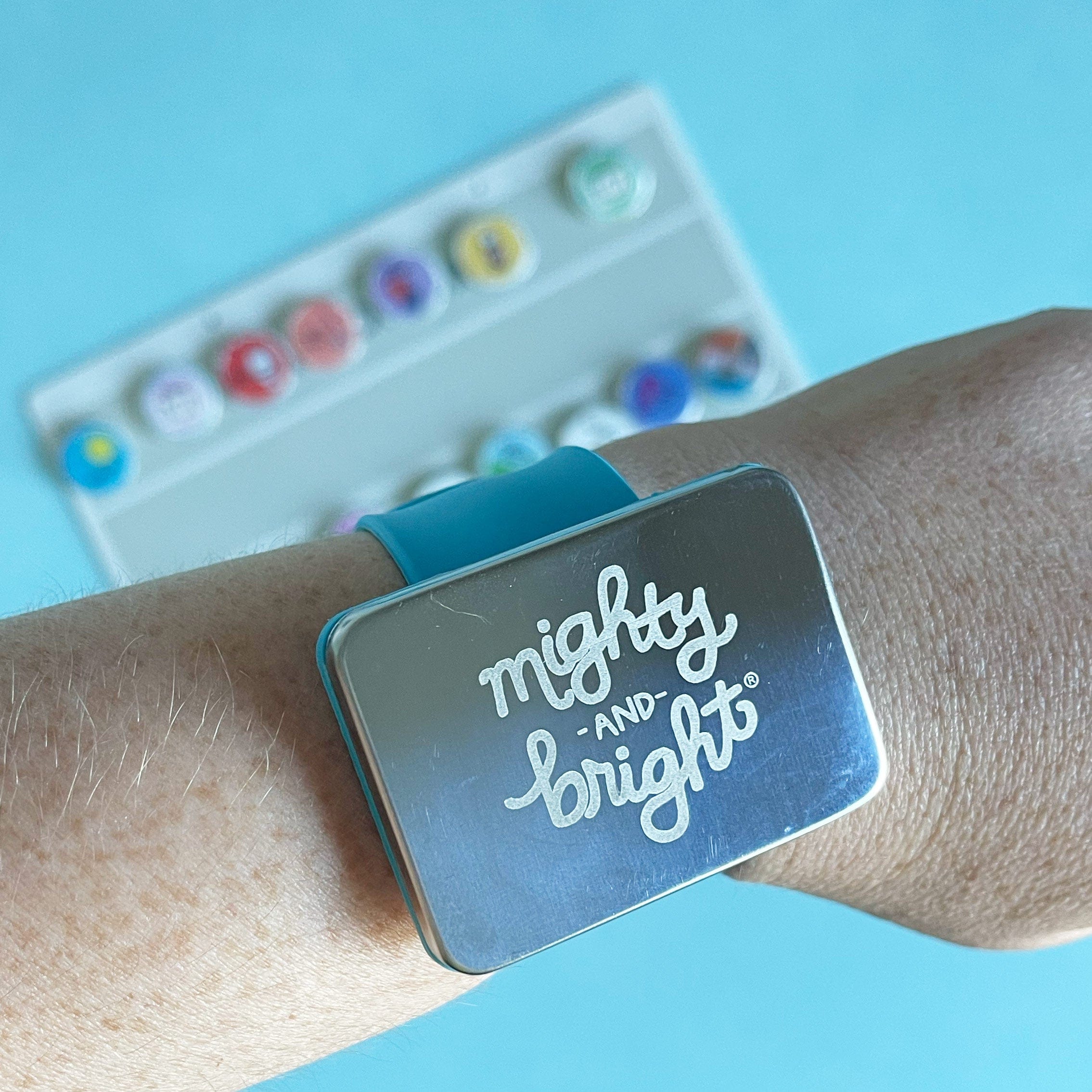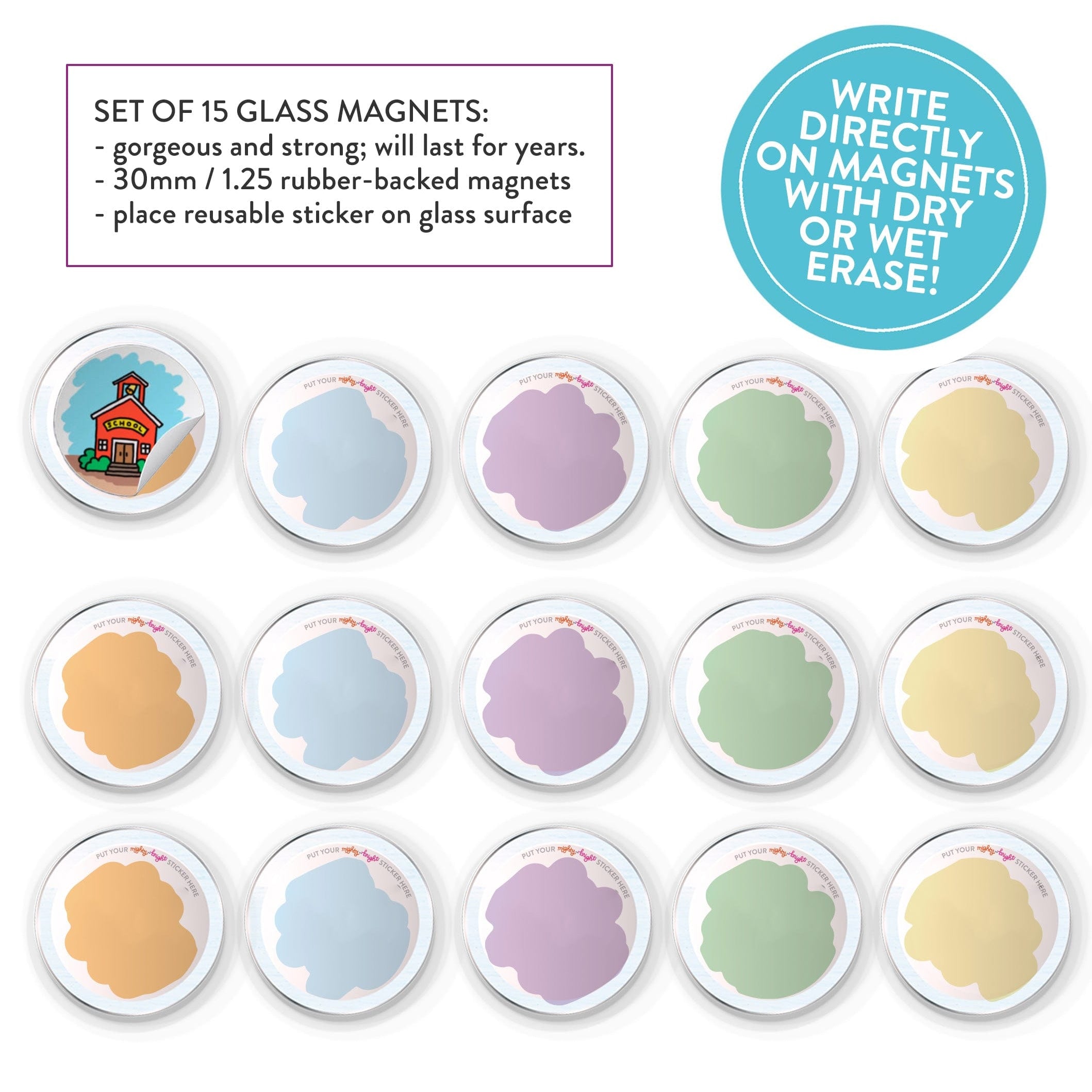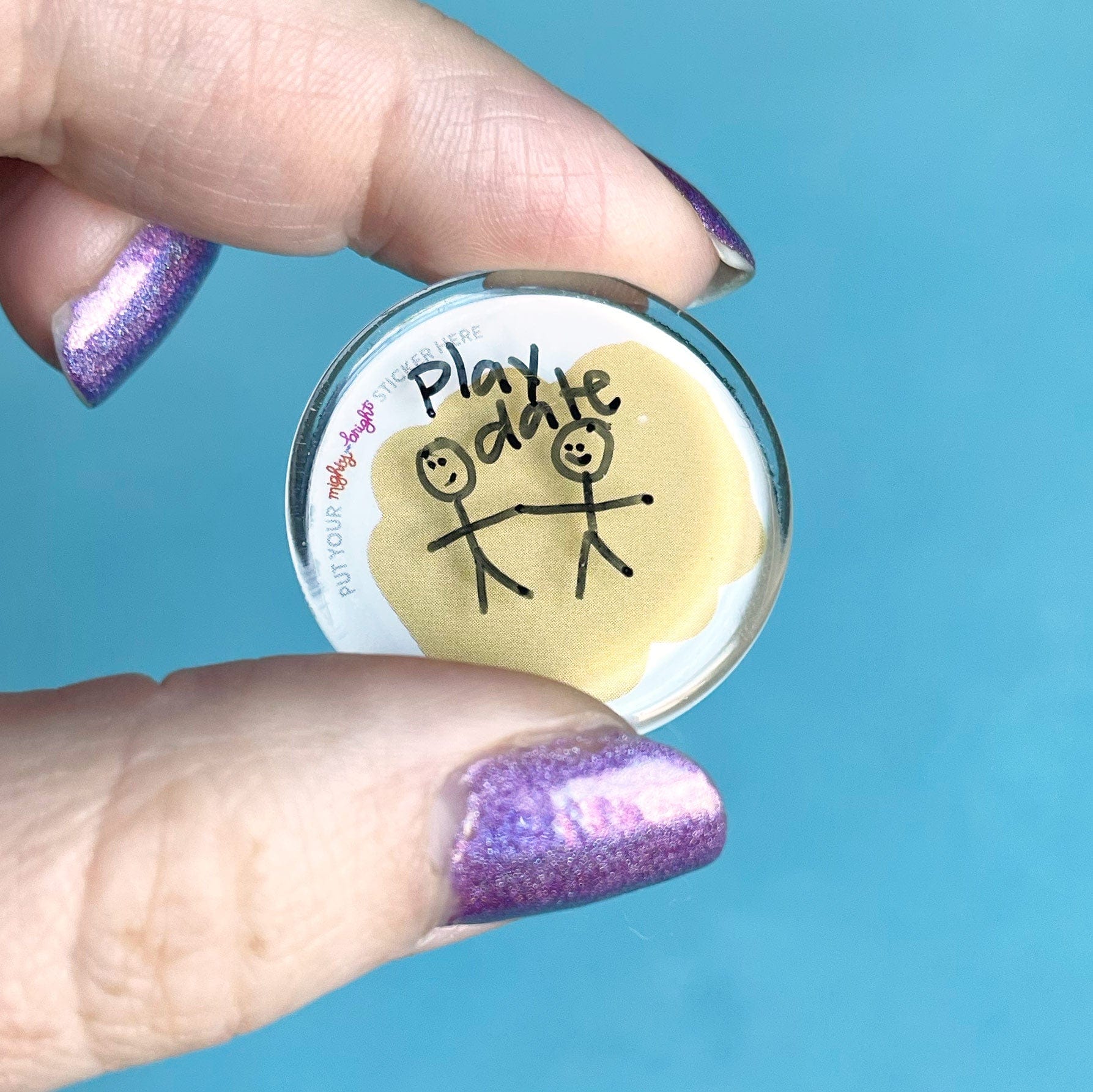Bundle + Save
Set Expectations + Ease Transitions with Daily Routines
AGES 2 ½ - 6
Make Life Make Sense with Weekly Calendars
Available in different themes: everyday, divorce, foster care, and more.
AGES 2 ½ - 10+
Set Kids Up for Success with Visual Chores + Room Reset
AGES 5 - 10+
Customize Your Schedules with Stickers for Everything
You might also like...
You May be Wondering...
Why wouldn't I DIY this?
You could.
But often, we spend so much time trying to solve the problem that by the time our glorious velcro routine chart is actually done, we've lost the steam required to implement it.
Our founder has done all the work for you — ten years of work, in fact — coming up with the perfect system for your family.
The result is a system that might look simple, but has every single thing accounted for — including a fall-back for routine items or activities that you forgot.
After all, the last thing you want to do is spend a bunch of time DIYing something, paying to have it laminated, and then discovering you forgot something.
Plus, you can feel good that you're supporting a single mom's hard work.
What makes this different from other visual schedules?
“We've tried to create visual systems before, but we really struggled to pull systems together that we could see all the way through and stick with.”
You may have downloaded a visual schedule on Etsy or tried to DIY your own. Maybe you got one on Amazon, or you have a big command center, but the kids aren't referencing it.
Mighty + Bright's visual schedules are different (that's why we get feedback like Jessye's!). Every aspect of our well-thought-out visual system is thoughtfully designed to get kids on board. Here are a few of the problems our schedules solve:
- Kids don't look at the command center. Kids need their own calendar with only their stuff on it. When there's too much to look at, their brains basically short-circuit and they get overwhelmed.
- Kids don't stay motivated to use it. Kids need something engaging and fun in order to stay motivated (that's why we use fun stickers, which kids LOVE, magnets that make that satisfying "click," and fun add-ons like our Stay on Task braceelt. We also have a special way of introducing our schedules, which you'll learn about in your Power Up.
- Kids won't even try it, because they don't like being bossed. Kids need to feel like they had a say in their schedule (don’t worry, we’ve got a hack for that in the Power Up.)
Wouldn't this be better as an app? Why *isn't* it an app?
The truth is, some things are better when they're analog, and this is one of them.
Kids' executive functioning skills aren't developed yet, and these charts provide a bridge between what we want them to do and what they're capable of doing. We want them to learn how to do things without relying on a device's notifications, which automatically interrupt us so we don't have to use our brains to remember them. It's similar to relying on a Maps app. We don't actually learn how to get to school if we rely on the maps to get us there every time.
Using devices keeps the invisible invisible - so unless we remember to check the list, we don't actually solve the whole "out of sight, out of mind" problem. It doesn't give us a sense of control over our lives — it gives us a sense of being dependent on a device so we don't completely lose our minds. I don't know about you, but I'd prefer my daughter not grow up that way.
We should also consider the impact of teaching our kids using apps. Notifications are great for things we need to be reminded of, but it's not ideal for reminding us to do things we need to do on a daily basis to take care of ourselves. Again, we aren't actually creating the neural pathways we need to learn a habit, and notifications affect our stress response.
According to Dr Sanam Hafeez, a psychologist at Columbia University, “[Notifications] send our brain into overdrive, triggering anxiety and stress, and at the very least, hypervigilance, which is meant to protect us from predators, not the phone.”
And, on a less serious note, it's nice to have something that you can use for years *without* a subscription.
I have multiple kids. Do I need a calendar or chart for each kid?
If we want a tool like this to work, we want our kids to feel a sense of pride and ownership and like they had a part in building it.
Part of being a kid is feeling like life is happening to you. All the grown-ups make all the decisions, they're constantly telling you what to do and what not to do...just bossing you around, all day long.
Being part of the conversation about what is going to happen during the week or day gives kids a sense of control that every human needs in order to relax, no matter what their age is.
When you're splitting the calendars between multiple kids, you can understand how that sense of control might be diluted.
When they feel a sense of ownership over the calendar because it represents them and their lives, they feel a sense of pride. And with that sense of pride, comes a willingness to use it. And when they use it, they feel even more pride, and more responsible, and they continue to use it.
When something belongs to just us, we like it better. And we want them to like this and use it. So as much as I wish I could tell you that the kids can share it, it's going to be much more effective if they have their own.
We know that buying a chart for each kid can get very expensive, which is why we offer discounts on 2+ of every calendar kit.
What if I want to show a whole month at a time?
The decision to carry only weekly calendars was not made lightly — it was made based on research about what kids can handle.
The truth is, depending on the age kids can handle only about a week or two at a time. Especially when they're going through something difficult, it can actually increase anxiety to see too far down the line.
Also, depending on their age, they might not be able to think that far down the line. When a kid asks for a snack and you tell them they can have one in five minutes, they react like, "that is literally my whole life, I will starve to death." So if five minutes feels like that, imagine what a three weeks might feel like!
The goal is to display the child's life for them to understand — not to create a command center for the whole family. In this case, making it as simple as possible is a benefit.
That said, if you have a reason to show more than one week at a time (such as co-parenting arrangement where the child sees a parent every other weekend), you might want to create an always up-to-date perpetual calendar. Here's a post from Instagram showing you how to do that.
How will I know how to use this? What's a Power Up?
It's really easy, but just in case, every calendar comes with our digital Power Up™ for Everyday Structure.
We’ve spent over a year distilling the most important research and thick parenting books into a totally approachable, not-boring Power Up™ PDF that you’ll actually read. Remember: you don’t need to be a superhero to be an incredible parent. You just need the right tools, and you need them to be easy to execute. We got you.Learn everything you need (and nothing you don’t) about how to teach the vital mental health skill of Building Connection. Each Power Up™ includes:
✔ A quick-start guide to using the physical tool and implementing it in your household,
✔ Easy-to-read, one-page or less "deep dives" on the topic so you really understand it,
✔ Research and resources to learn about why each skill is important and how you'll know that you've succeeded in teaching it,
✔ Printable Coloring Sheets + Activity pages for kids to do without your assistance, reinforcing what they've learned and providing a reminder of the benefits of using the skill,
✔ Optional video Q&As (they're also written out in the Power Up booklet) and audio content to listen to at your convenience (and only if you want to!),
✔ Answers to frequently asked questions about each skill (and the ability to submit your own, to be answered by our experts),
✔ Recommended additional resources if you want to take a deeper dive on the topic

